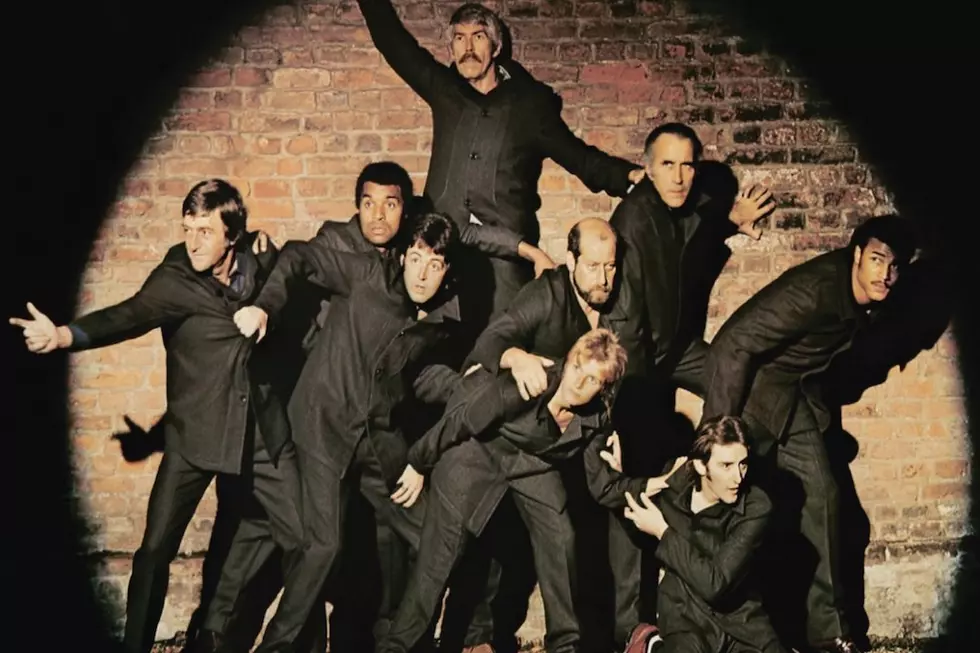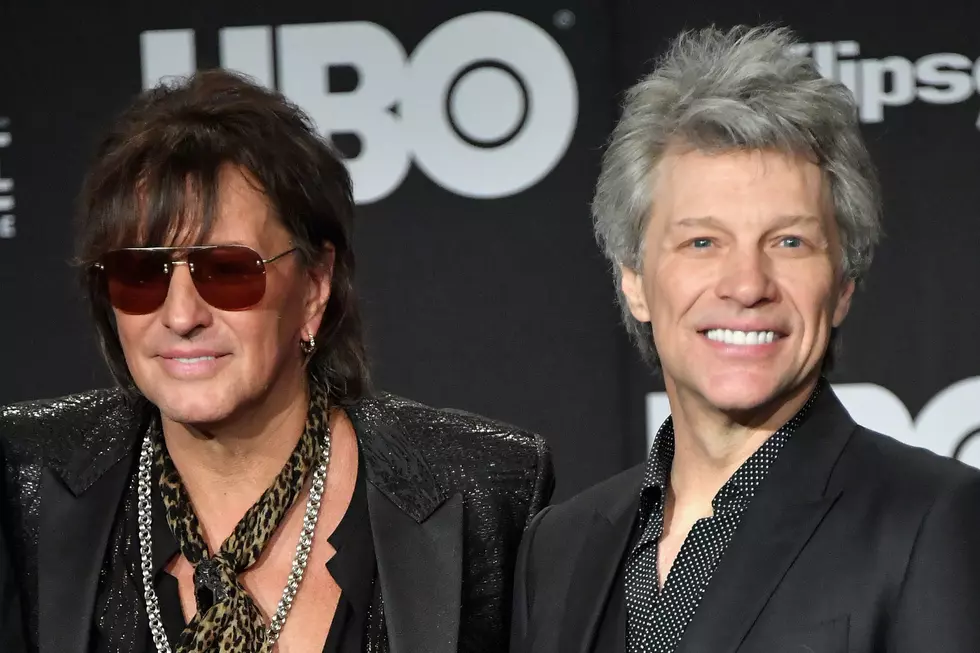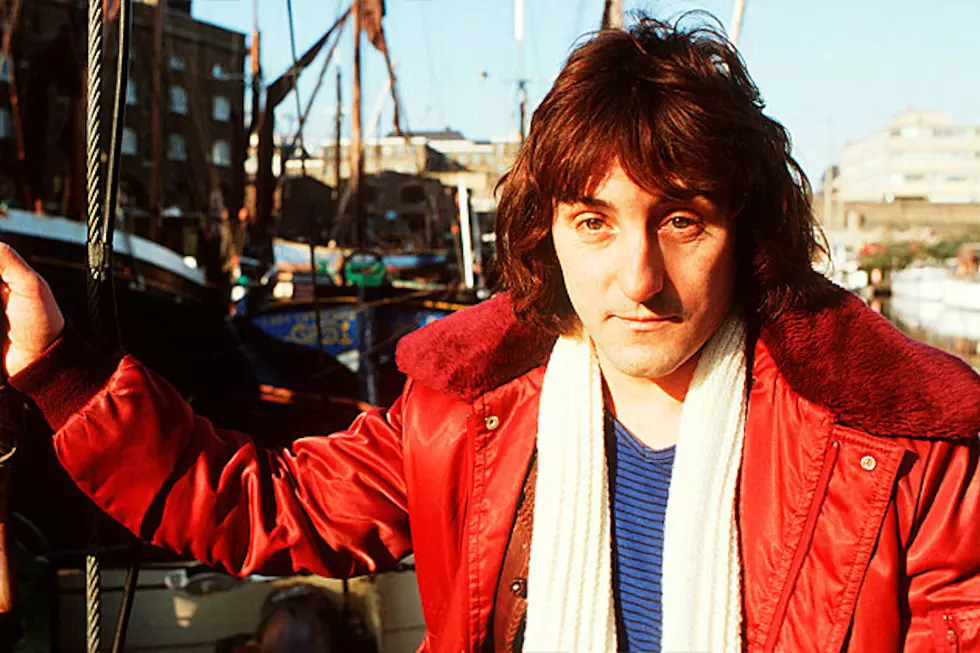
50 Years Ago: Paul McCartney’s ‘Band on the Run’ Becomes Mishap-Laden Apex
Many of Paul McCartney’s biggest fans will readily admit that he’s put out his share of clunkers over the years. However, his Wings album Band on the Run, which was released on Dec. 5, 1973, is almost universally acknowledged as the best of his post-Beatles career.
For all the talk McCartney made of the idea of Wings as a band – albeit one with a distinct frontman calling all the shots – he had trouble keeping that dynamic together throughout Wings’ 10-year run. As they were about to begin recording their third record, guitarist Henry McCullough and drummer Denny Seiwell quit the group, leaving Wings down to only three members: McCartney, his wife Linda, and guitarist Denny Laine. It was a portent that things were not about to go as planned.
In an attempt to shake things up after the first two uninspired Wings albums, McCartney decided to leave Britain and record at EMI’s studio in Lagos, Nigeria. The three of them, along with engineer Geoff Emerick, flew to Africa expecting a lush tropical resort, but instead found a poverty-stricken, disease-riddled nation run by a military dictatorship, and in the middle of its rainy season, no less.
The poor conditions extended down to the studio, where the standards were far below the state-of-the-art equipment that McCartney typically used.
READ MORE: Top 10 Paul McCartney and Wings Songs
If that wasn’t bad enough, they endured a few crises during the six weeks they were in Lagos. While out walking one evening, Paul and Linda were robbed at knifepoint, with the thieves making off with his lyric sheets and demos in addition to their valuables. In the middle of a session, Paul collapsed from a bronchial spasm caused by too much smoking. The group also had to contend with Afrobeat legend and political activist Fela Kuti, who publicly accused McCartney of coming to Africa to exploit indigenous music. McCartney invited Kuti to the studio to play him the tapes and assure him that the music did not have African influences.
Listen to Wings' 'Band on the Run'
Wings Balanced Pop Smarts and Eclecticism
Somehow, they managed to keep everything together. McCartney, whose skill at multiple instruments is well-documented, took over lead guitar and drum chores for the departed members. Still, the tension of the recording sessions was reflected in the first words of the album’s opener, which was also the title track. “Stuck inside these four walls / Sent inside forever / Never seeing no one nice again / Like you … / If we ever get out of here.” But McCartney’s perpetual optimism nonetheless won out, with them breaking free by the end of the song, never to be found.
As with all of McCartney’s best efforts, the album's strength lies in finding that delicate balance between his pop sensibilities, eclecticism and willingness to experiment. There are rockers both full-throated ("Jet") and muscular ("Let Me Roll It," which some believed to be a swipe at John Lennon) and folky ballads ("Bluebird" and "Mamunia"). He indulged his whimsical side – so effective on the underrated Ram – for "Mrs. Vandebilt" and "Nineteen Hundred and Eighty-Five." Even the slighter songs, "No Words" and "Picasso's Last Words (Drink to Me)" have passages throughout to keep you coming back.
“When we got back home, people said, ‘Ah, out of adversity has been born a good album,’” McCartney reflected in 1998. “But I hate that theory. It may well be true, but that’s why I don’t like it. I hate the idea that you’ve got to sweat and suffer to produce something good. But it turned out successfully, anyway.”
The public agreed. Band on the Run reached No. 1 on the Billboard album chart and spawned three Top 10 singles – including "Helen Wheels," a stand-alone single included on the U.S. release of the album over McCartney’s objections. To date, the album has sold some seven million copies worldwide.
McCartney clearly had a high opinion of Band on the Run. Three of its songs – "Jet," "Let Me Roll It" and the title track – became a regular part of his concerts after his return to touring in 1989. He later added "Mrs. Vandebilt" and "Nineteen Hundred and Eighty-Five" to the setlist, making Band on the Run better represented than any other post-Beatles album.
The Best Song From Every Paul McCartney Album
Gallery Credit: Nick DeRiso
Was Paul McCartney’s ‘Broadstreet’ Doomed to Fail?
More From KKTX FM










